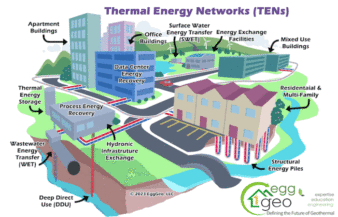Following successful laboratory testing, company begins field testing stage
Trane Technologies (NYSE: TT), a global climate innovator, has surpassed U.S. Department of Energy (DOE) requirements for the Residential Cold Climate Heat Pump (CCHP) Challenge for high-efficiency heating in freezing temperatures. After outperforming in laboratory tests in extremely cold temperatures, the Trane® high-efficiency, cold climate heat pump will begin field trials this month.
“As a sustainability leader, we relentlessly innovate to develop high-efficiency heat pumps and other sustainable solutions that transition away from fossil fuels and reduce carbon emissions,” said Jason Bingham, president of Residential HVAC, Trane Technologies. “We’re excited to move to the next phase of the DOE challenge. As more and more homeowners choose sustainable solutions like heat pumps, we look forward to helping them take advantage of new clean energy tax credits and rebates available through the Inflation Reduction Act.”

When tested at the DOE’s lab, Trane’s CCHP prototype performed in temperatures as low as negative 23 degrees Fahrenheit, surpassing the mandatory negative 20 degrees Fahrenheit DOE requirement.
“When tested at the Oak Ridge National Lab Facility, our prototype pushed the limits of the testing with high performance even as temperatures moved beyond the trial scope. To stop this Trane unit, they had to manually cut the power,” said Katie Davis, vice president of engineering and technology, Residential HVAC, Trane Technologies. “We are excited to conduct field testing with this heat pump and keep families warm while supporting a more sustainable future. It’s hard to stop a Trane!”
Until this new technology is available, the company continues to offer the most efficient options available today including heat pumps, more environmentally minded furnaces, and the pairing of the two in dual fuel systems.
Through bold, industry-leading action, Trane Technologies is creating efficient and sustainable comfort solutions and advancing its 2030 Sustainability Commitments, including the company’s Gigaton Challenge – the largest validated science-based climate commitment related to product use emissions, which pledges to reduce one billion metric tons (one gigaton) of greenhouse gas emissions from customers’ carbon footprints by 2030.




Join the conversation: